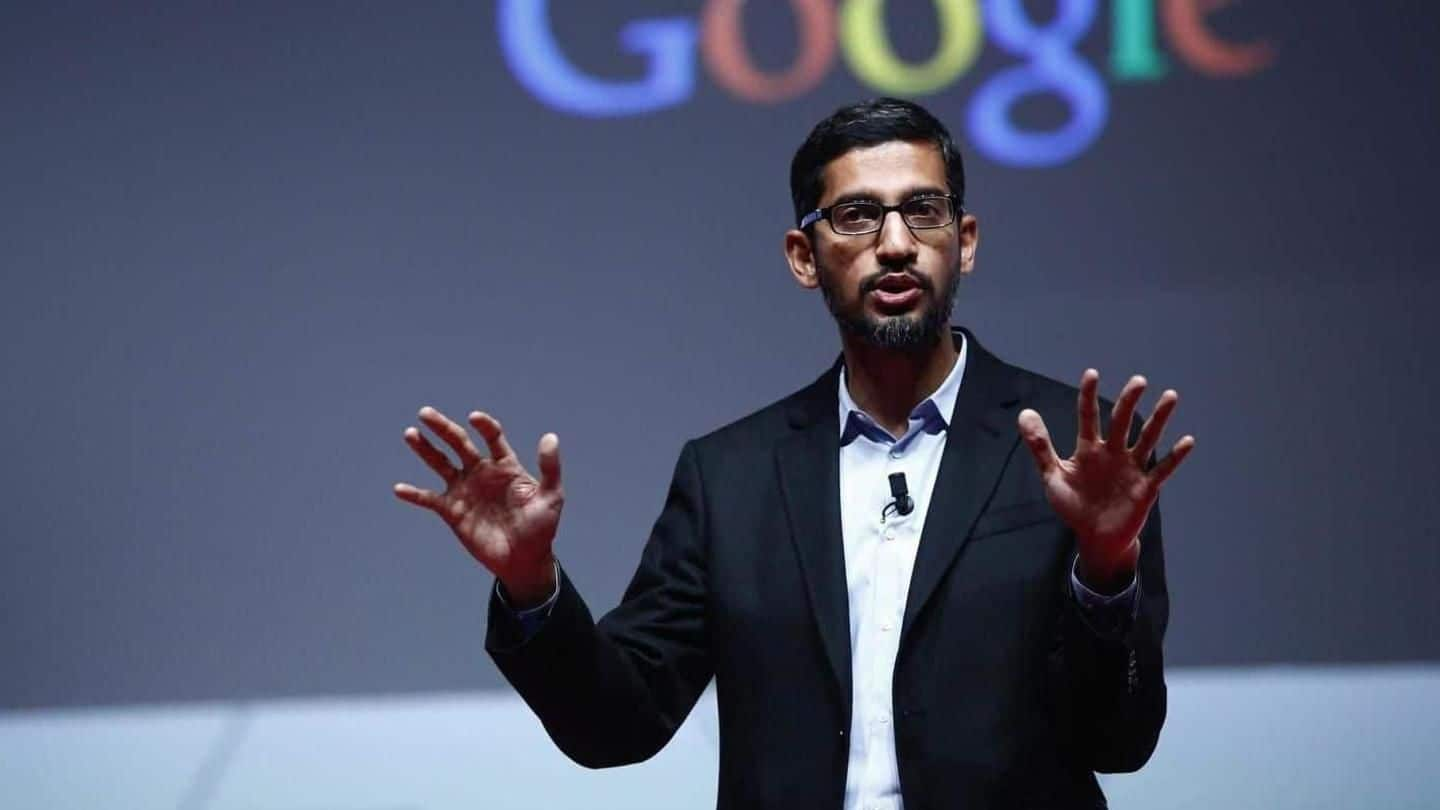
Tension over Project Maven pull-out draws Sundar Pichai to Pentagon
What's the story
Last week, Google CEO Sundar Pichai discreetly met with a group of civilian and military leaders in the Pentagon in a bid to ease tensions over Google's withdrawal from Project Maven.
The development comes after an employee uprising in Google prompted the tech giant to drop out of the military project which involved using AI for drones.
Here's what went down.
Meeting
What little we know about the meeting
According to people familiar with the matter, Pichai's rare, two-day Washington visit involved meeting with civilian and military leaders, mostly from the office of the Undersecretary of Defense for Intelligence, which is responsible for overseeing Project Maven.
Beyond that, not much is known as both Google, and the US Department of Defense (DoD) refused to comment on the meeting between Pichai and senior leaders.
Thin line
Google is walking a very thin line
Yet, this very secrecy surrounding the meeting underscores the thin line Google is walking - on one hand, it wants to retain its employees who are opposed to working on military technology. On the other hand, it also wants lucrative military contracts from Washington.
However, when Google withdrew from Project Maven in June this year, it didn't sit particularly well with US military leaders.
Project Maven
What is Project Maven?
For those unaware, Project Maven, started in April 2017, was Google's first big AI partnership with the Pentagon.
The project involved the use of AI to automatically tag cars, buildings etc. in videos recorded by drones flying over conflict areas.
However, in June, Google announced that it would not renew the project with the US DoD after it expired in January 2019.
Uprising
An employee uprising caused Google to change its mind
Google's change of heart over Project Maven came after thousands of employees voiced their objections to working on military technology.
In April this year, over 3,000 Google employees wrote an open letter to CEO Pichai, saying that "Google should not be in the business of war".
They also demanded "a clear policy stating that neither Google nor its contractors will ever build warfare technology".
Google's stance
How Pichai reacted to Google employees' demands
Subsequently, Pichai announced that Google would not "design or deploy AI in weapons or other technologies whose principal purpose or implementation is to cause or directly facilitate injury to people".
Neither would it use AI for "technologies that gather or use information for surveillance violating internationally accepted norms".
However, Pichai added that Google wouldn't completely sever ties with the military and the government.
Quote
What Pichai said about working with the government and military
Explaining Google's stance, Pichai had then said that while Google would not be "developing AI for use in weapons, we will continue our work with governments and the military in many other areas like cybersecurity, training, military recruitment, veterans' healthcare, and search and rescue".
Google's woes
Congressional lawmakers are pretty upset at Google
However, Google's stance didn't sit well with military leaders and congressional lawmakers, especially Republicans, who rebuked the tech giant for withdrawing from Project Maven.
To add to Google's woes, reports that it is developing a censored search engine for China has also irked US lawmakers, who feel that the tech giant is aiding China while withdrawing from US DoD contracts.
Quote
Google's credibility was badly hurt by Project Maven withdrawal
"Google's credibility as a company you can trust with vital national security work was badly hurt by the Maven pullout," said Gregory Allen from Washinton-based think-tank, Centre for a New American Security. Incidentally, many congressional lawmakers share Allen's sentiments about Google's withdrawal.